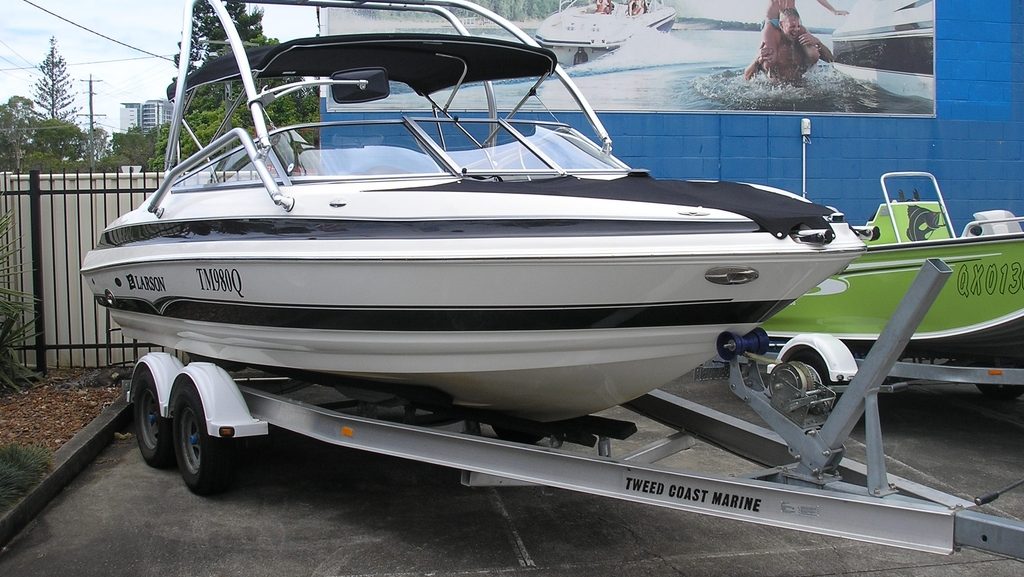The used boat industry has really picked up over the last few years, and amateur boaters have a wide range of options to choose from as better deals (prices and conditions) become available.
With the U.S. economy still sluggish and the Canadian dollar hovering at parity, demand for new boats is in decline and used boats are increasingly popular. South of the border, many boat owners are choosing to sell their crafts via yachtbrokers, dealers or even their financial institutions (in the case of repossessed boats). Consequently, used boats aren’t just “fashionable” again, but with supply exceeding demand, we’ve got a buyer’s market on our hands. There’s plenty of selection, prices are low, and purchase conditions are excellent. Buyers can therefore afford to be choosy and negotiate the terms of their purchase.
All this begs the question: “When buying a used boat, am I better off doing business with a private seller or an established dealership?”
Purchasing a boat – used or new – is a major investment. So, in order to answer this question properly, you should first consider the following criteria: 1) the condition of the boat and its engine; 2) the asking price and its market value; and 3) the conditions surrounding the purchase of the second-hand boat.
1) Boat and engine condition
The condition of the boat is by far the most important thing to consider. That’s why it’s essential that you carefully examine the boat before purchasing it.
If you’re thinking of buying a used boat for sale by its owner, it’s worth paying a boat expert for a professional assessment. The cost is usually $14-20 per linear foot. Note that most of these experts don’t do an in-depth inspection of the engine and can’t verify its performance. This means that you’ll want to have an engine technician (preferably someone who specializes in boat engines) have a look at it. Once you’ve received the reports from both these specialists, you have to make sure that you understand what they mean and use this information to negotiate on the price. Obviously, if major work is needed, you can always cancel the sale. But if only minor repairs are in order, you’ll have to work out an agreement with the seller.
Things are very different when you buy from a boat dealer – presuming the dealer is reputable, responsible and wants to stay in business, that is! Going to a dealer means that you don’t have to shell out extra cash for a boat expert or engine technician. Established dealers will usually guarantee the boat’s condition and include this guarantee in the sales contract.
2) Asking price and market price*
One of the advantages of buying from a private seller is the possibility of getting the boat “at a friend rate.” After all, you don’t have to be the buyer’s friend to know a good deal when you see one! Some sellers want to offload their boat at any price. So, if you’re able to compare the boat’s quality and condition to the market price*, you might just save yourself some money by buying directly from an owner. That said, some sellers set their prices way too high – which presents no advantage to the buyer. Meanwhile, dealerships have no choice but to set their prices according to the boat’s real value. If they don’t, they’ll soon find themselves out of business!
A note on sales tax
In Canada, some provinces tax the purchase of used boats – even when sold privately. But if you live in one of the provinces that doesn’t tax private sales, you could save yourself a pretty penny by buying directly from an owner! Dealerships are obligated to charge provincial sales tax (PST) as well as goods and services tax (GST). Add these to the asking price and the total cost can rise significantly.
In practice, however, this advantage isn’t always so cut and dried, as many private sellers jack up their prices to match what you would pay (tax-in) at a dealership. Plus dealerships can always give you a tax credit if you want to trade in your old boat for a new one, thus offsetting some of the cost.
3) Sales conditions
Reviewing ownership papers, financing, and after-sale services – in my opinion, these are extremely important things to consider when buying a used boat. And that’s where dealerships offer a real advantage. The dealer does all the work verifying and recognizing the owner history and permit transfers. Meanwhile, if you buy through a private sale, you’ve got to do all that yourself.
And when it comes to financing, banks that offer financing for boats will only lend you money if you do business with a recognized dealership.
Finally, any dealership that cares about its reputation and wants repeat business will offer after-sale services. They will honour the terms of the warranty, in addition to providing helpful services and tips. For example, as part of their efforts to build a loyal client base, a good dealership will be able to point you to an insurance company and offer you maintenance services and winter storage.
*Market price: This price is determined by supply and demand in a given area. Several factors will come into play, including: model-year, overall condition, engine displacement, original equipment and options, and the model’s sales history.
The market price is not related to the price originally paid by the seller, to any amounts still owing on the boat, or to any personal equipment added to the boat.

